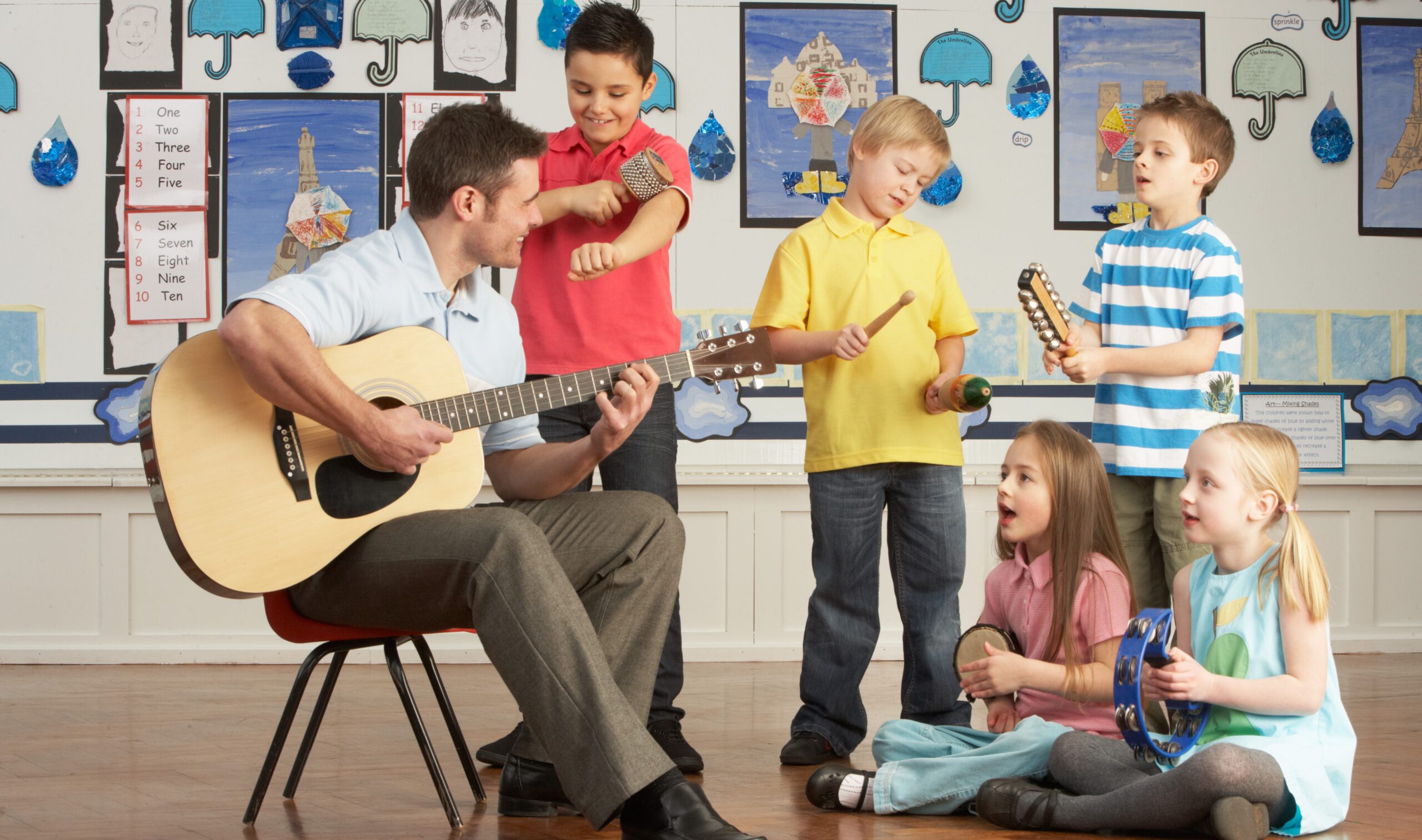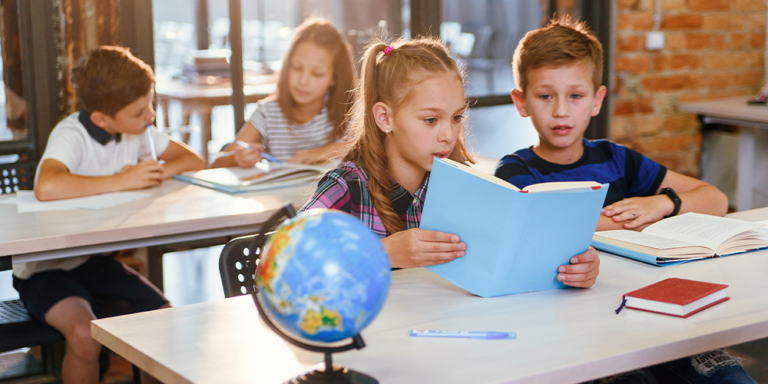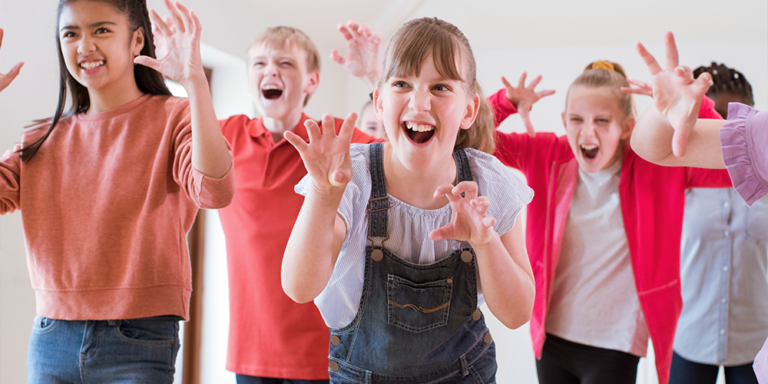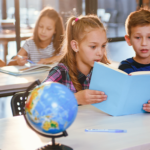An Interview With the Learners Edge Co-Founder
JOY is the emotion we feel when talking with Learners Edge (now Teaching Channel) co-founder, Kyle Pederson.
As a former middle school geography teacher, Kyle explains how he used music to engage his students, to help his students express themselves, and to ensure they remembered important facts. Now as a composer, Kyle shares his favorite musical artists and reminds us that music helps us to think better, remember better, and love better.
As you read Kyle’s perspective on using music to teach, we hope JOY is one of the emotions you feel, too!
Why did you become a teacher?
I remember reading The Quality School by William Glasser in college–and getting so excited and thinking, “This. This is what I need to do. I can be the kind of teacher that brings something new and exciting to the classroom.”
What was your favorite thing about teaching?
I loved squirreling away and planning lessons–writing skits, creating songs, visioning out scenarios, and crafting presentations. Presenting/teaching was also a hoot–but the most joy would come just scheming and dreaming “what might be.”
What about teaching challenged you the most?
Coming to terms with the fact that even the most carefully crafted lesson would not guarantee student learning.
What are you doing now?
Composing for choirs and helping students and choruses of all ages/styles breathe life into new music.
What is your first recollection of being “musical”?
I have a vivid memory of my parents getting a piano in our living room when I was around 5 years old. My first composition (right around that time) was entitled “Balk Balk Chicken Balk.” It was epic (and quite short). My mom was a good pianist and would occasionally play, and both mom and dad were good singers. My musical “career” really got a boost in 7th grade when my choir director asked me to be the piano accompanist for the show choir. I got to sink my teeth into some really fun music, make a guest appearance as the monster in Monster Mash, and find my voice as a budding entertainer/performer.
Music is a way for people to express themselves. Did you ever use music to help your students articulate how or what they were feeling, or was music used as a strategy to remember facts and knowledge?
During my first year teaching middle school, I shared my classroom with a music teacher–so there was a piano in the corner. One day, when my geography students were having a hard time distinguishing lines of latitude with lines of longitude, so, I just started noodling on a blues riff and singing a little impromptu ditty about lines of latitude running the fat way…and I sang it with a bit of an Elvis Presley vibe…and it instantly connected with students.
It was clear this style of teaching would resonate with students, so I created a song to help them remember the 5 themes of geography, and then eventually (over the next 10 years or so) a song to help them remember the geographic order of every country in every continent.
Music at that time was pretty much solely a means of helping students remember content. Of course now, as a composer, I recognize (and encourage) the importance of music as an expression for emotion and beauty.
When you used music with your students, what happened?
I would often see even the most “hardened” and generally disinterested students come alive and enthusiastically join in. Granted, some of my songs were actually spoken word/rap—and I would encourage kids to yell at the top of their lungs and try to disrupt the strict English and science teachers down the hall. What student wouldn’t jump at that chance? But I think students came to view me and my classroom as someplace that encouraged fun, where the teacher was able to laugh at himself, and where students were able to be creative.
I remember when my own children came home from school and were singing “These 50 Nifty United States” easily singing all 50 of the states in alphabetical order. Knowing what you know about music and the brain, how does music help us to remember?
First, I have a beef with “50 Nifty”: when (other than a trivia game) is it ever helpful to be able to list the states in ALPHABETICAL ORDER?! Sure, it’s a cute song…but wouldn’t it be so much more useful if students could list states in GEOGRAPHIC ORDER? So when you gave them a map, they could actually name the states accurately? That’s where I come in. 🙂
Long before neuroscientists were identifying the mechanisms in the brain that aid in retention/memory, people understood that melody and rhythm could carry content and help people recall all sorts of random information- you hook content/information to be retained to something that is inherently memorable (a song, a story, a picture, etc.)…and the information is embedded alongside.
Why isn’t it used more often? I think most teachers are a bit scared to sing or chant or use rhythm/movement with students. It’s perhaps asking teachers to be a bit more vulnerable in front of students than they are used to (or desire!). “Oh, I can’t really sing….I’m not that musical…etc. Also, using mnemonic devices takes some intentionality and creative thought–and I think teachers’ plates are already overflowing with responsibilities and expectations. Finally, teachers really aren’t trained to use the arts in their classroom. Hard to expect teachers to integrate something they have very little training in.
Does it concern you that music and the arts are often the first things cut when there are budget cuts, what can we do about it?
The arts are important not primarily because they boost performance in other academic areas, but because the arts are essential to who we are as humans. The arts are foundational to any holistic understanding and pursuit of beauty, emotion, and relationship. At the core of an educated person–and of a fully alive and actualized person–is a solid grounding, appreciation, and interest in the arts. I worry when arts educators feel forced to defend arts education in terms of art’s impact on measurable things like test scores. We’re giving up too much when we allow the conversation to start there.
There is a program my daughter uses called Sketchy Medical to help her study. The website says it “harnesses the power of visual learning.” Music is auditory, kinesthetic (dance, instruments, toe-tapping), visual (reading music), too. How does music harnesses the many learning styles, or is it as simple as music makes things fun–and if learning is fun, kids learn?
If students are having fun, their level of engagement skyrockets and they learn. Visuals, multi-media, movement, dance, drama–all of these can be powerful learning tools. But with music you can incorporate all sorts of individual elements in addition to melody and rhythm–you can include dance and movement, an element of drama…so it very much has elements of the “traditional 3” learning styles (visual, auditory, kinesthetic).
For those of us who may feel a bit intimidated about using music in our classrooms, can you give us a few tips about where to start? (you play the piano and the organ, but all I can play is Chop Sticks!)
- Spoken word: everybody can create a rap/rhyme. You don’t need to have Lin Manuel Miranda talent to figure out how to put some content into a rhythm/beat.
- Take a simple children’s song that everybody knows and swap out the lyrics with content you’d like them to remember.
- Cue up a few iconic tunes on your phone and turn them into mood setters/transition elements.
For example:
- before every quiz bowl you could play “Let’s Get Ready to Rumble”
- before reading from the “Sacred Book of Geographic Knowledge” (the textbook), set it up by playing a few measures of “You are so Beautiful to Me” and turning it into a bit of a ritual.
- As you hand out a test, play “We are the Champions”
In what ways do you believe music makes the world better?
For me, that’s almost like asking, “how does food, water, and breath make the world better?” Music is at the core of who we are. It helps us feel and express emotions that we might not otherwise explore. It draws us together as a community. It entertains. It helps us express who we are. It can immediately help us recall a treasured memory or feeling. It helps us think better. It helps us love better.
Who are your favorite musical artists and why?
Jake Runestad, Jocelyn Hagen are two local composers who are fearless, ambitious, uber-talented and breaking boundaries
Director Jason Max Ferdinand and his Aeolians College Choir from Oakwood University are re-defining and re-imagining what a choir can sound like.
Robert Robinson: local gospel singing legend…his voice is just other-worldly.
Sting: the dude plays twenty-some instruments, has been writing relevant pop music for decades, and has ridiculous biceps at age 67.
Rick Astley, because he’s never gonna give you up, never gonna let you down, never gonna run around and desert you
What one piece of knowledge or advice about music would you like everyone reading this blog to remember?
I’d ask each educator to imagine music not as an “extra” or a “special,” but as foundational to who we are as people. What would happen if “regular” classroom teachers began to think of music as something as “core” to students as reading, writing, or speaking?
Kyle, thank you for taking the time to share your ideas with us! To learn more about Kyle Pederson, check out his website kylepederson.com






